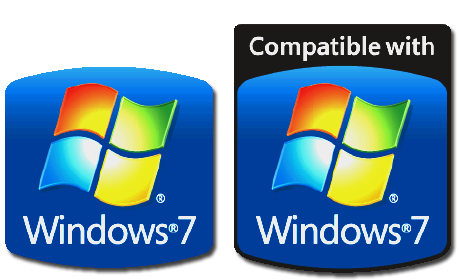74% of Enterprise PCs Are Still Running Win XP
Microsoft recently announced that it had hit a huge milestone with Windows 7: they had sold 150 million copies. However, despite this success in the mainstream consumer market, the adoption rate among enterprise customers has been slow.
Microsoft this week revealed that the vast majority of businesses are still running on Microsoft's nine-year-old OS, Windows XP. Speaking yesterday at the Windows Partner Conference, Corporate Vice President of Windows, Tammi Reller, admitted that nearly three quarters (74 percent) of business PCs are still running XP. Reller also revealed that, at 4.4 years, the average age of a business PC is the highest it's ever been.
Though business adoption has been slow, things should look up soon if a recent study by Dimensional Research is to be believed. Back in April the firm conducted a survey of nearly 1,000 IT professionals and found worries about upgrading to Windows 7 had decreased while worries about maintaining Windows XP had increased.
The survey found that 87 percent of respondents planned to deploy Windows 7. This is compared to 47 percent who had plans to deploy Vista at a comparable point after its release. Further, 46 percent of the total surveyed revealed they had plans to migrate even before the release of SP1. Dimensional Research said that, while 25 percent of people expressed concerns about Windows 7 performance, this is down from 47 percent last year.
Although 60 percent of the respondents were worried about the cost and overhead of migrating to Windows 7, that figure was down from 72 percent last year. Similarly, 40 percent of the respondents said that they're worried about the hassles of maintaining Windows XP as it gets older. This figure is up from 28 percent last year.
Get Tom's Hardware's best news and in-depth reviews, straight to your inbox.

Jane McEntegart is a writer, editor, and marketing communications professional with 17 years of experience in the technology industry. She has written about a wide range of technology topics, including smartphones, tablets, and game consoles. Her articles have been published in Tom's Guide, Tom's Hardware, MobileSyrup, and Edge Up.
-
deadly4u Where I work... we are upgrading our old ass infrastructure to another system that still has XP. The main reason is because 90% of the web applications DIE INSTANTLY or fail with certain components on anything higher than Internet Explorer 6. There are a TON of other XP Legacy programs too.Reply
Upgrading to Windows 7 would also exceed the capabilities of 40-50% of the equipment in use. It is also 100% incompatible with the Novell system we use. -
wotan31 Of course it does. Because most enterprise applications don't work under Vista or Seven. The backwards compatibility is horrendous. It will be a looooong time before most enterprise customers abandon XP. Where I work, we're slowly phasing out all our Windows servers, in favor of more cost effective Linux and UNIX solutions. I imagine its only a matter of time before we start looking at doing the same with the desktops as well. Desktop Linux or OSX makes a LOT of sense when all your servers are running Linux or UNIX too...Reply -
Judguh I know I can't have Windows 7 at my new job because of applications that I need will not work with the new OS *cough*Cisco*cough*.Reply -
ikaz Yeah were I work we have the same problem with old applications not working on anything higer than explorer 6. Also we have lots and lots of old app (even Dos,fox pro applications) in use which barely run right under XP though all of our PC's are windows 7 ready. There is a slow push to try to move to newest version we only phased out 99% of our windows 2k PC's last month (at least in my area with about 8-10k PC's) but our enterprise is about 200k+ PC's. Most of the hold up is departments with out enough money to buy newest version of there apps and since they (bussiness departments) pay for IT they are the one who say when we can what we can do.Reply -
iam2thecrowe this is no surprise. For a work place to update all their PC's to windows 7 may mean updating all hardware, peripherals and software, migrating data across to the new system etc. Put simply its a pain in the ass and will cost big $$. For most companies there is no reason to go to win7 until they stop supporting XP.Reply -
zorky9 It's not that most of these businesses don't want to. There's simply not enough money to upgrade.Reply -
jhansonxi There are major companies still using Windows 2000. Most IT departments are very conservative with software procurement and in the current economic climate don't expect major expenditures.Reply
IE6 must die but a lot of enterprises have reduced staff and don't have the developers available to retool badly-written legacy applications. Hopefully they learn from this and in the future follow proper HTML standards and avoid garbage like ActiveX. -
redgarl Sad in a way. There is no real reason to use XP and microsoft office 2003 when you got Unbutu and Open Office.Reply -
extremepcs Application compatibility, low-end hardware, and the fact that the deployment tools for 7, well, blow, are the main reasons for lack of adoption in the corporate world.Reply
